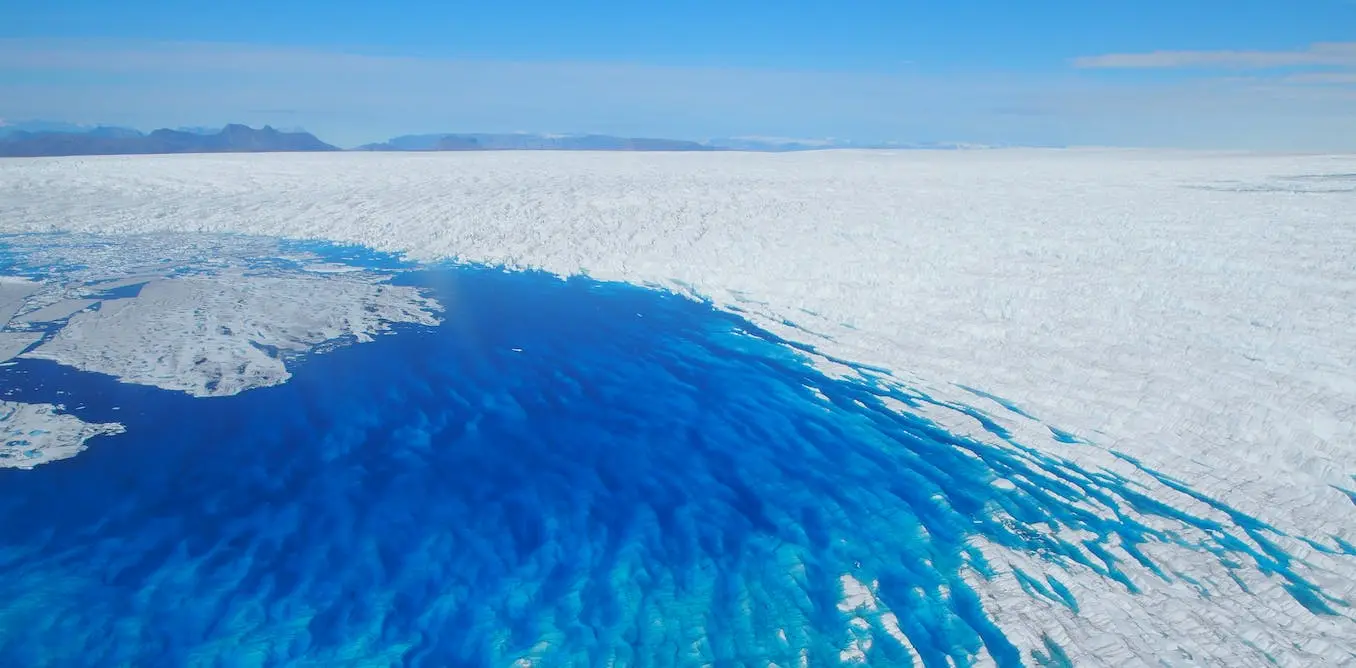The results are fascinating. If temperatures peak at 2°C or so, and remain there, then the models – as expected – predict substantial ice sheet collapse after several thousands of years.
However, things change if warming is seriously mitigated post-2100. In those models, inertia in the ice sheet’s response – a bit like the time it takes for a ripple to settle down as it passes across a pond – means that an overshoot is at least partly reversible as long as temperatures are quickly brought back down.
The paper is here, and says:
Our results show that the maximum GMT and the time span of overshooting given GMT targets are critical in determining GrIS stability. We find a threshold GMT between 1.7 °C and 2.3 °C above preindustrial levels for an abrupt ice-sheet loss.





It’ll melt.